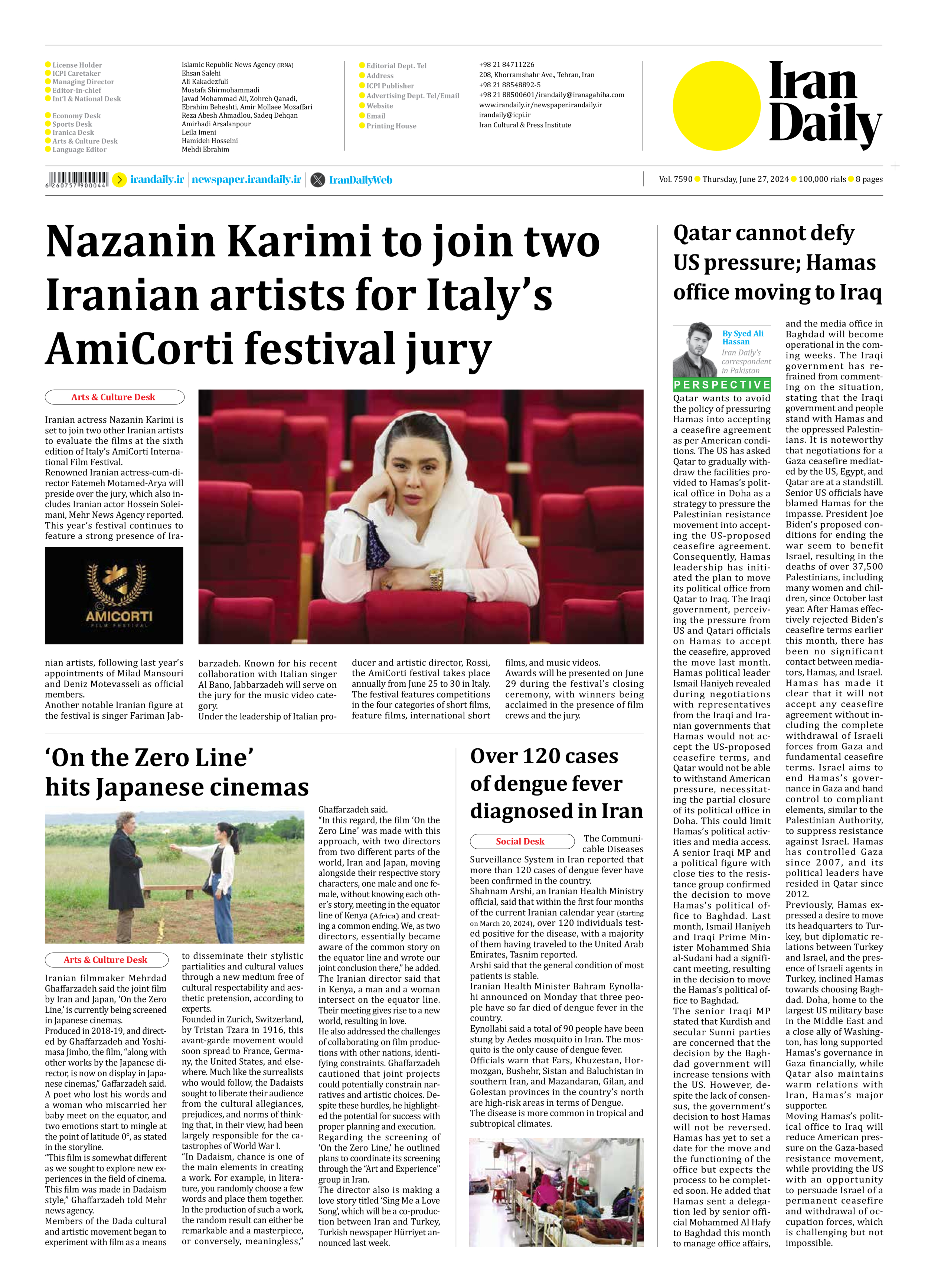
‘On the Zero Line’ hits Japanese cinemas
Iranian filmmaker Mehrdad Ghaffarzadeh said the joint film by Iran and Japan, ‘On the Zero Line,’ is currently being screened in Japanese cinemas.
Produced in 2018-19, and directed by Ghaffarzadeh and Yoshimasa Jimbo, the film, “along with other works by the Japanese director, is now on display in Japanese cinemas,” Gaffarzadeh said.
A poet who lost his words and a woman who miscarried her baby meet on the equator, and two emotions start to mingle at the point of latitude 0°, as stated in the storyline.
“This film is somewhat different as we sought to explore new experiences in the field of cinema. This film was made in Dadaism style,” Ghaffarzadeh told Mehr news agency.
Members of the Dada cultural and artistic movement began to experiment with film as a means to disseminate their stylistic partialities and cultural values through a new medium free of cultural respectability and aesthetic pretension, according to experts.
Founded in Zurich, Switzerland, by Tristan Tzara in 1916, this avant-garde movement would soon spread to France, Germany, the United States, and elsewhere. Much like the surrealists who would follow, the Dadaists sought to liberate their audience from the cultural allegiances, prejudices, and norms of thinking that, in their view, had been largely responsible for the catastrophes of World War I.
“In Dadaism, chance is one of the main elements in creating a work. For example, in literature, you randomly choose a few words and place them together. In the production of such a work, the random result can either be remarkable and a masterpiece, or conversely, meaningless,” Ghaffarzadeh said.
“In this regard, the film ‘On the Zero Line’ was made with this approach, with two directors from two different parts of the world, Iran and Japan, moving alongside their respective story characters, one male and one female, without knowing each other’s story, meeting in the equator line of Kenya (Africa) and creating a common ending. We, as two directors, essentially became aware of the common story on the equator line and wrote our joint conclusion there,” he added.
The Iranian director said that in Kenya, a man and a woman intersect on the equator line. Their meeting gives rise to a new world, resulting in love.
He also addressed the challenges of collaborating on film productions with other nations, identifying constraints. Ghaffarzadeh cautioned that joint projects could potentially constrain narratives and artistic choices. Despite these hurdles, he highlighted the potential for success with proper planning and execution.
Regarding the screening of ‘On the Zero Line,’ he outlined plans to coordinate its screening through the “Art and Experience” group in Iran.
The director also is making a love story titled ‘Sing Me a Love Song’, which will be a co-production between Iran and Turkey, Turkish newspaper Hürriyet announced last week.







